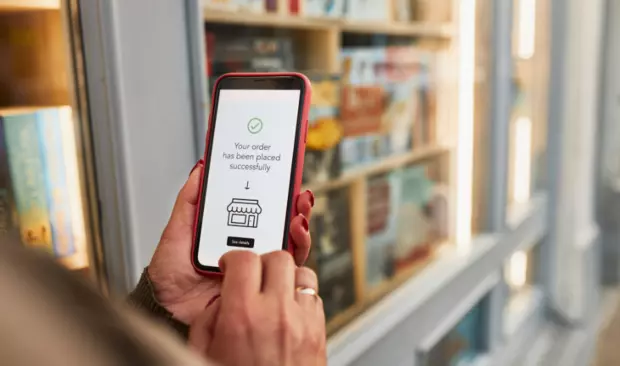What is multi-channel retail?

Retailers in both the B2B and B2C worlds have never had more sales channels open to them – whether it be in-store, via a website or mobile app, on social media, online marketplaces and/or at pop-up stores and events.
But just because you can keep adding sales channels doesn’t mean you should. Unless you have a clear strategy, closely aligned to your customers’ preferences, you’ll end up wasting precious resources on channels that aren’t profitable, and may even be losing money.
For instance, selling bulky goods via a trade counter is more suited to in-store and click-and-collect, rather than selling on social media. However, if you’re a self-employed crafter, you might opt for your own ecommerce site, Etsy and social media.
One of the big challenges of multichannel retail is managing orders and synchronising stock across a growing number of sales channels. Product availability has to be reflected in online listings and digital marketing, otherwise customers will be left feeling frustrated, and your marketing activity won’t deliver the ROI you’d hoped for.
Ambitious retailers recognise this, and are turning to multichannel software to help them deliver seamless shopping experiences, and maximise the profitability of every channel.
Among them is our customer Sam Turner & Sons, a garden and country clothes retailer. Using our ERP and WMS products, the team has seen a 570% jump in average monthly online orders, and a 16% rise in annual profits.
What is multichannel marketing?
An integrated multichannel sales and marketing strategy helps to ensure that all of your channels deliver value.
Depending on your budget and the nature of your business, you might choose organic and paid social media, online ads, email and offline tactics to raise brand awareness and generate sales. The good thing about digital marketing is that it can be far more precise compared to offline ads. For example, online remarketing targets users who’ve previously interacted with a brand, encouraging them to take the next step, whether it be to make a purchase, sign up to a loyalty scheme or newsletter or all three.
Multichannel vs omnichannel – what is the difference?
While multichannel and omnichannel are often used interchangeably, they are different.
Omnichannel connects customer experiences across two or more channels, incentivising them to interact with and buy from any of them. Zara’s Store Mode app is a good example of omnichannel retailing in action. Bridging the gap between in-store and online retail, shoppers can browse and reserve items, and even book a fitting room.
There have been plenty of discussions about omnichannel retail in recent years but achieving it is extremely difficult. Major brands are only just getting there now, after significant investments in technology include data analytics.
Multichannel, on the other hand, is more accessible for mid-sized firms – and with an integrated approach to sales and marketing, you can create an engaging and consistent experience across every channel.
Customer experience
Old branding, differences in the style and tone of your content, and mismatched pricing send out mixed messages to customers that can lead to lost sales. The goal of a multichannel strategy is to enhance customer experiences at every touchpoint, ensuring that nothing jars or distracts them along the way.
Multichannel software provides the visibility that you need to manage, optimise and grow every sales channel so it is as profitable as it can be.
Depending on your requirements, you could integrate this software with your existing website or create a new ecommerce platform, tailored to your customers.
These systems can also connect your instore EPOS, ecommerce platforms and marketplace with your warehouse operations giving you real-time visibility of stock, and integrate with multiple couriers to speed up fulfilment. Finally, today’s multichannel software provides the business intelligence you need to continually assess the effectiveness of every sales channel and make adjustments so you get the most from all of them.
Find out more about how Orderwise’s multichannel software can support your operation.